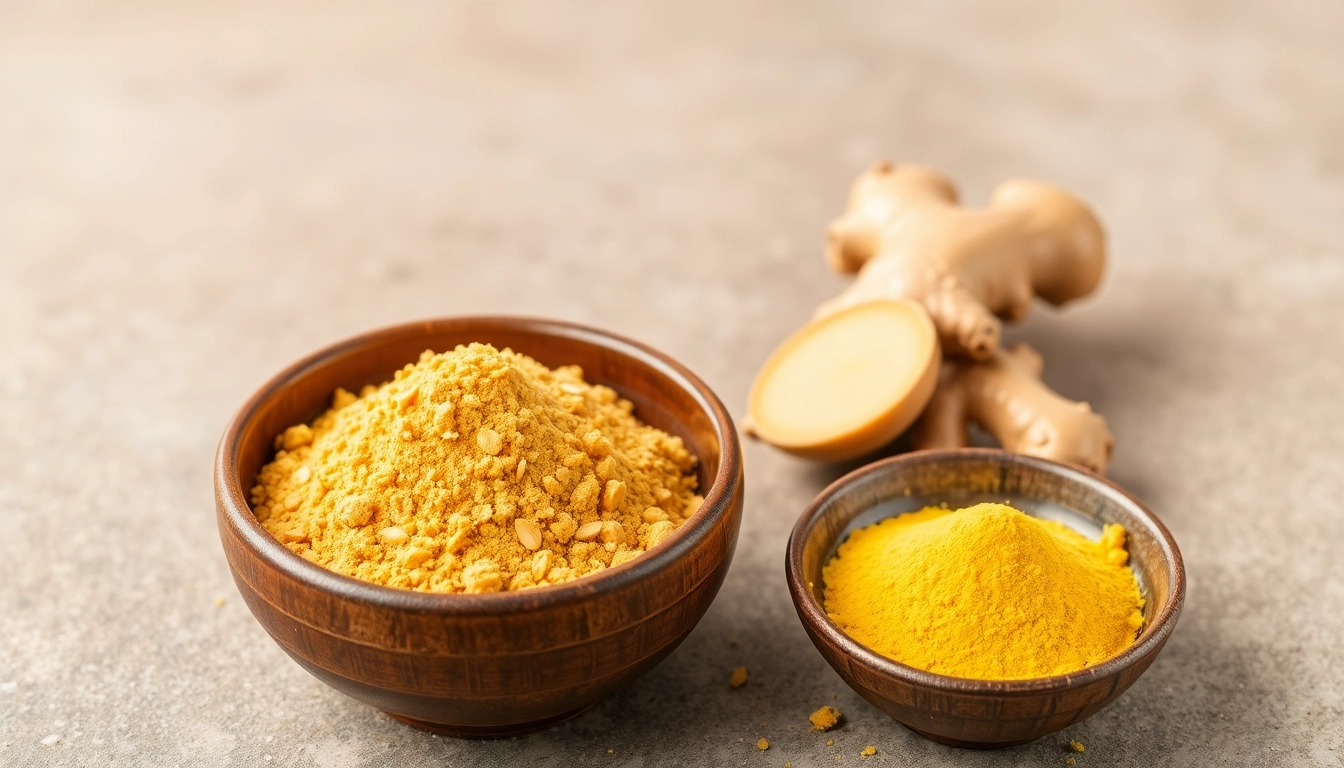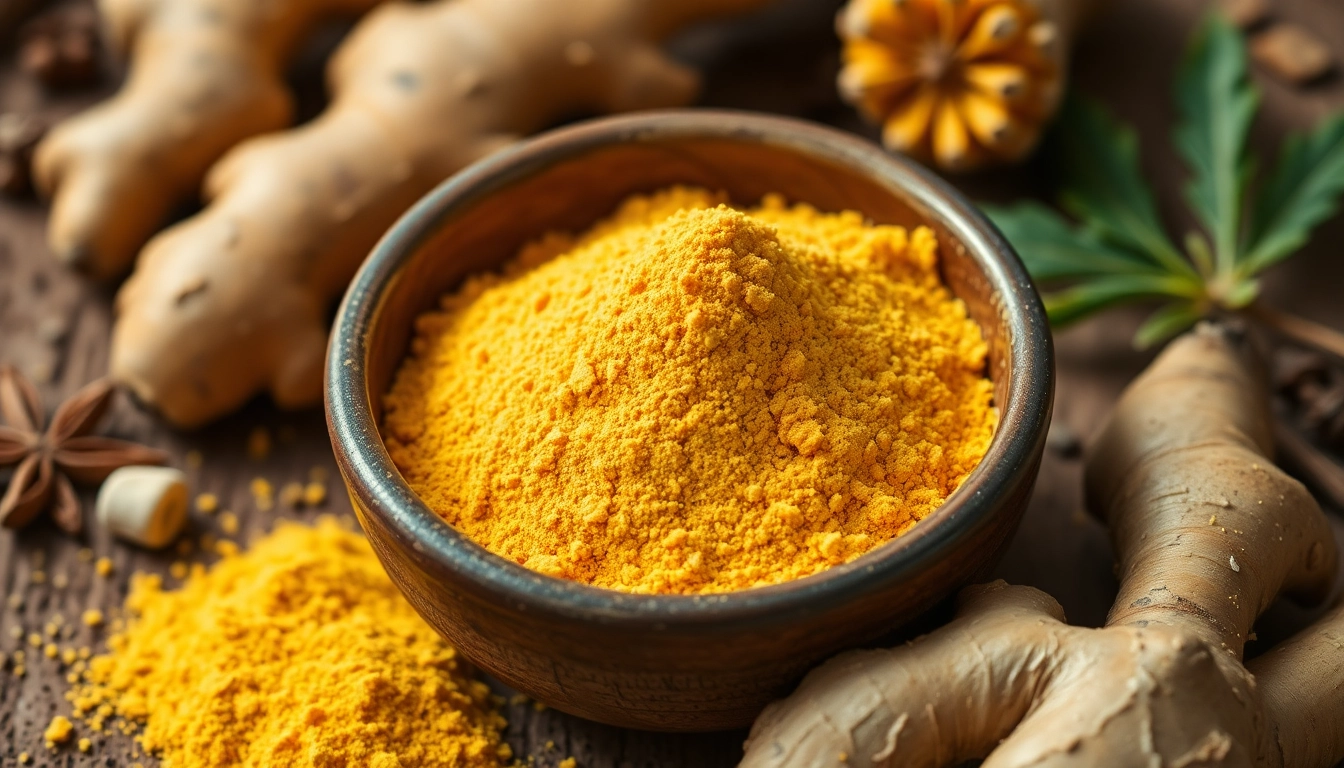Unlocking the Power of Ginger Powder: A Comprehensive Guide for Culinary Excellence
Ginger powder stands as a versatile and vital ingredient in kitchens worldwide, celebrated for its robust flavor, aroma, and numerous health benefits. As a leading manufacturer and exporter of authentic spices, Ginger Powder from Spice Nest offers quality, purity, and consistency to culinary enthusiasts, food manufacturers, and exporters. This comprehensive guide explores everything you need to know about selecting, using, and marketing ginger powder, empowering you to elevate your culinary creations and business opportunities.
Understanding the Benefits of Ginger Powder
Health advantages of ginger powder in daily diets
Ginger powder is renowned for its potent medicinal properties, making it a staple addition to health-conscious diets. Rich in bioactive compounds like gingerol, shogaol, and paradol, it possesses powerful anti-inflammatory, antioxidant, and antimicrobial properties. Incorporating ginger powder into daily routines can help alleviate digestive issues such as indigestion, nausea, and bloating. Additionally, it supports immune function, reduces muscle soreness, and may even aid in managing chronic conditions like osteoarthritis and cardiovascular diseases.
Ginger powder’s role in enhancing flavor and aroma
Beyond health benefits, ginger powder significantly enhances the sensory profile of dishes. Its pungent, warm aroma and spicy flavor add depth to cuisines ranging from Indian curries to Western baked goods. Unlike fresh ginger, powder provides a consistent flavor intensity and long shelf life, making it an indispensable ingredient for flavor balancing. Whether used in marinades, spice blends, or beverages, ginger powder imparts a distinct zest that elevates culinary experiences.
Comparison with fresh ginger and other spice alternatives
While fresh ginger offers a bright, sharp flavor with a moist texture, ginger powder provides convenience, longevity, and concentrated potency. The drying process removes moisture, allowing for easier storage and consistent flavor distribution. However, it is essential to source high-quality, certified ginger powder to avoid adulteration and preserve its nutritional benefits. When substituting for fresh ginger in recipes, generally use one-third the amount of powder due to its concentrated flavor—this ensures balanced seasoning and aroma.
How to Select Quality Ginger Powder
Certifications and quality indicators to look for
Choosing authentic, high-grade ginger powder requires attention to certifications such as ISO, HACCP, and organic labels. These certifications ensure adherence to safety standards and purity benchmarks. A reputable supplier like Spice Nest guarantees that their ginger powder is processed under stringent quality controls, maintaining aroma, flavor, and nutritional integrity. Additionally, look for indicators of freshness, vibrant color, and an absence of additives or fillers.
Identifying authentic vs. adulterated ginger powder
Adulteration is a common challenge in the spice industry, often involving the addition of artificial flavors, colorants, or fillers. Authentic ginger powder has a distinct aroma, spicy pungency, and a natural golden-brown hue. Conduct simple home tests like smell verification—genuine ginger exhibits a fresh, spicy aroma. A color test with a small amount of powder dissolved in alcohol or water can also reveal adulteration; synthetic dyes typically migrate easily, unlike natural powders. Purchasing from certified sources reduces the risk of adulteration.
Trusted suppliers and sourcing tips for bulk purchase
Establishing reliable sourcing channels is crucial for consistent quality and supply. Engage with established manufacturers like Spice Nest, who participate in major international food exhibitions, demonstrate compliance, and offer certifications. When buying in bulk, request samples for testing, verify supplier credentials, and inquire about their processing and storage facilities. Building long-term relationships with trusted suppliers ensures stability, quality assurance, and favorable pricing for your business.
Best Culinary Uses of Ginger Powder
Popular recipes and cooking techniques using ginger powder
Ginger powder’s versatility extends across various cuisines. It is a core ingredient in Indian spice blends like garam masala and chai, as well as in Asian stir-fries, soups, and stews. When cooking, add ginger powder early in the process to infuse dishes with its aromatic essence, or near the end for a more pronounced flavor. For baking, it complements cookies, cakes, and bread, providing warmth and depth. Additionally, it enhances savory sauces and marinades, tenderizing meats and balancing spices.
Incorporating ginger powder into beverages and smoothies
Ginger powder is ideal for creating healthful drinks like ginger tea, detox waters, or spicy smoothies. To prepare a soothing ginger tea, steep a teaspoon of powder in hot water with honey and lemon. For smoothies, blend ginger powder with fruits like mango, pineapple, or berries, along with yogurt or coconut water. Its natural spiciness adds a invigorating kick and aids digestion, making your beverages both tasty and health-promoting.
Creative ideas for seasoning, marinades, and baked goods
Innovative culinary applications include spice rubs for grilled meats, salad dressings, and pickles that benefit from the pungency of ginger powder. Use it to make spice-infused oils or create savory snack coatings. In baking, combine with cinnamon, nutmeg, or cloves for holiday goodies. Marinating chicken or seafood in ginger-based pastes enhances flavor and moisture. As a seasoning, ginger powder can also elevate soups, curries, and even vegan desserts, offering a warm, spicy note that delights the palate.
Maximizing Shelf Life and Storage
Proper storage conditions to retain freshness and potency
Ginger powder should be stored in airtight, opaque containers in a cool, dry place away from direct sunlight, moisture, and heat. Proper storage prevents oxidation and keeps the essential oils intact, preserving flavor, aroma, and nutritional qualities. Using food-grade, vacuum-sealed, or hermetically sealed packaging ensures maximum longevity, especially when purchasing in bulk.
Packaging options for longevity and convenience
For retail and bulk consumption, packaging choices include stand-up pouches, glass jars, or aluminum containers with airtight seals. Spice Nest offers customized packaging tailored to client needs, emphasizing ease of use and shelf stability. Labeling should include manufacturing and expiry dates, batch numbers, and certifications, increasing consumer confidence and regulatory compliance.
Signs of expired or degraded ginger powder to watch for
Indicators of degraded ginger powder include a dull color, loss of aroma, and a bitter or off-taste. Clumping or moisture signs suggest spoilage or contamination. Regularly checking stored spice quality ensures ongoing freshness, safety, and consistency in culinary applications. When in doubt, perform a smell and taste test before use.
Marketing and Export Opportunities for Ginger Powder
Emerging markets and trends in organic spices
The global organic food market is experiencing rapid growth, driven by consumer preferences for clean-label, pesticide-free products. Organic ginger powder appeals to health-conscious markets in North America, Europe, and Asia. Certifications like organic and fair trade enhance credibility and export potential, positioning your product as a premium choice in international markets.
Packaging and branding strategies to stand out internationally
Effective branding emphasizes purity, authenticity, and health benefits. Incorporate attractive labeling with clear certifications, origin stories, and usage suggestions. Eco-friendly packaging further appeals to environmentally conscious consumers. Leveraging storytelling around traditional cultivation and processing methods builds trust and differentiation.
Compliance with export standards and certifications
Adhere to international standards such as HACCP, ISO, and organic certifications to meet importing countries’ requirements. Conduct quality assurance testing, ensure proper documentation, and stay updated on phytosanitary regulations. Partnering with reputed exporters like Spice Nest, who are verified and participate in major global trade shows, streamlines compliance and enhances market access.

